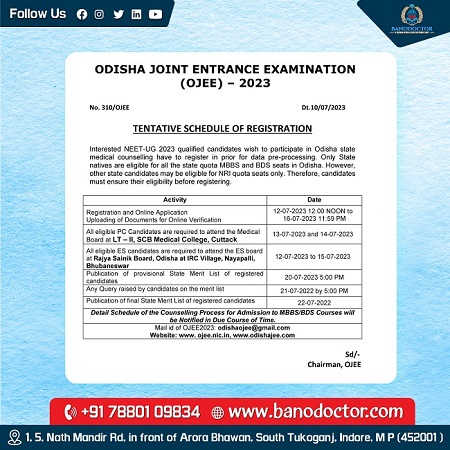MD Dermatology (Doctor of Medicine in Dermatology)
Study MD Dermatology (Doctor of Medicine in Dermatology) in India
The field of dermatology is a growing and important area of medical science. It is the field concerned with diagnosing and treating diseases and conditions of the skin, hair, and nails. With recent advancements in modern medicine and technology, it has become increasingly important to have specialized training in this field. The study of MD dermatology in India has many benefits, and this article will explore those benefits in detail.
Overview of MD Dermatology (Doctor of Medicine in Dermatology) in India:
MD Dermatology in India is a field of medicine that focuses on diagnosing and treating skin diseases and disorders. It is a specialty area of medicine that deals with diagnosing and treating diseases of the skin, hair, nails, and mucous membranes. Dermatologists are medical doctors who specialize in diagnosing and treating skin diseases and disorders.
MD Dermatology is a rapidly growing field in India, with many medical colleges and universities offering courses. Due to the increased prevalence of skin diseases in India, the demand for dermatologists has grown exponentially over the past few years. The Indian Association of Dermatologists and Venereologists (IADV) is the premier professional organization for dermatologists in India. It is a non-profit body that works to promote the advancement of the science and practice of dermatology in India.
The Benefits of Pursuing MD Dermatology (Doctor of Medicine in Dermatology) in India
Dermatology is a rapidly growing field of medicine, and many medical professionals are now choosing to specialize in this area. India is a great choice for those seeking an MD in Dermatology, as it offers many benefits, including an abundance of excellent medical schools and the potential for career growth.
Access to Abundant Resources:
India has abundant resources available to those pursuing an MD in Dermatology. From textbooks to journals to online resources, there is no shortage of materials that can help a student to stay up-to-date with the latest developments in the field. In addition, several medical conferences and workshops are held throughout the country, allowing students to network with professionals from around the world and gain valuable insights into the field.
Low Cost of Education:
The cost of pursuing an MD in Dermatology in India is much lower than in many other countries. This is because the Indian government subsidizes the cost of medical education, making it more affordable for students. In addition, several scholarships and grants are available to assist students with the cost of their studies, making it even more affordable.
Potential for Career Growth:
India is home to some of the best medical schools in the world, providing students with the opportunity to gain an education that is on par with the best institutions. This means that graduates of these institutions have access to a wide range of career opportunities in India and abroad, making it a great choice for those looking for a long-term career in Dermatology.
Access to World-Class Medical Schools:
India is home to some of the best medical schools in the world, providing students with the opportunity to access world-class education and training in Dermatology. These schools are well-equipped with the latest technologies, allowing students to gain a comprehensive understanding of the field and be prepared for the challenges of the real world.
Access to Cutting-Edge Technologies:
The medical schools in India are well-equipped with the latest technologies, allowing students access to state-of-the-art treatments and techniques. This means that students can gain an in-depth understanding of the field and the ability to use the latest tools and technologies to diagnose and treat skin conditions and diseases.
Opportunities to Collaborate with Global Experts:
India is home to some of the leading Dermatology experts, allowing students to collaborate with these professionals. This can benefit students, allowing them to learn from the best and gain valuable insights into the field. In addition, it is a great way for students to form connections and establish contacts in the field, which can benefit their future careers.
Job Prospects for MD Dermatology (Doctor of Medicine in Dermatology) in India
For those who pursue a career in dermatology, India has a wide range of job prospects available. As an MD dermatologist, one can have a successful and rewarding career. The country has various medical institutions, clinics, and research centers that offer excellent job opportunities for MD dermatologists.
Private Practice:
Private practice is among India's most popular job prospects for MD dermatologists. A private practice typically involves the individual setting up their clinic or office to provide medical services to patients. MD dermatologists can diagnose and treat various skin diseases and conditions in this setting. They may also offer cosmetic services like laser treatments, Botox, and fillers. Private practice allows MD dermatologists to tailor their services to meet client's needs and set their fees.
Teaching:
Teaching is another popular career option for MD dermatologists in India. Numerous medical schools, universities, and other educational institutions offer teaching positions in dermatology. MD dermatologists can teach classes on skin diseases and conditions and cosmetic treatments and procedures. Teaching is an excellent way for MD dermatologists to stay up-to-date on the latest developments in the field while also imparting their expertise to the next generation of medical professionals.
Research:
Research is another common career option for MD dermatologists in India. In this setting, MD dermatologists can research various skin diseases and conditions and new treatments and procedures. They may also work with pharmaceutical companies to develop new drugs and medications for skin conditions. Research is a great way for MD dermatologists to stay at the forefront of their field and to make important contributions to medical science.
Clinical Trials:
Clinical trials are another job prospect for MD dermatologists in India. In this setting, MD dermatologists can participate in clinical trials of new drugs and treatments for skin conditions. These trials are typically conducted with pharmaceutical companies and other medical research organizations. By participating in clinical trials, MD dermatologists can gain valuable experience in the field and contribute to developing new treatments and medications.
Hospital Settings:
Hospitals are another popular job prospect for MD dermatologists in India. MD dermatologists can provide medical services to inpatients and outpatients in this setting. They may also provide consultations and treatments to patients with skin diseases and conditions. Hospital settings offer MD dermatologists the opportunity to work with other medical professionals and gain experience in various medical settings.
Pharmaceutical Companies:
Pharmaceutical companies are another job prospect for MD dermatologists in India. In this setting, MD dermatologists can work with pharmaceutical companies to develop new medications and treatments for skin conditions. This can include conducting research, participating in clinical trials, and providing expert advice on developing new drugs and treatments. Working with pharmaceutical companies is an excellent way for MD dermatologists to gain valuable experience and contribute to the advancement of medical science.
Eligibility Requirements for MD Dermatology (Doctor of Medicine in Dermatology)
If you are considering pursuing a medical career in dermatology, then India is a great place to start. To study MD dermatology in India, certain eligibility requirements must be met. First, you must have completed your MBBS degree from a recognized university in India or abroad. Additionally, you should have at least one year of internship experience in a clinical setting. You must also clear the National Eligibility cum Entrance Test (NEET) for admission into a postgraduate medical course. Additionally, you must have a valid registration with the Medical Council of India (MCI) or any of the state medical councils. Finally, you should know basic computer skills.
Conclusion
Studying MD dermatology in India is a great option for aspiring dermatologists, as many esteemed institutions offer world-class courses. With many courses available, students can gain the knowledge and experience to become successful dermatologists. The opportunities for specialization and advancement in this field are immense, making it an attractive career path for those passionate about dermatology. With the right qualifications and attitude, studying MD dermatology in India can be a rewarding experience.
Frequently Asked Questions about MD Dermatology (Doctor of Medicine in Dermatology)
What are the eligibility criteria for MD dermatology in India?
To study MD dermatology in India, you must have a bachelor's degree in medicine from a recognized university. You must also have a minimum of 50% marks in the qualifying examination. In addition, you must have cleared the National Eligibility and Entrance Test (NEET) or other equivalent exams.
How long does it take to complete an MD dermatology degree?
Generally, it takes three years to complete an MD dermatology degree in India. This includes two years of coursework and one year of clinical rotations and research.
How much does it cost to study MD dermatology in India?
The cost of studying MD dermatology in India can vary depending on the college and university you choose. Generally, you can pay around Rs. 10 lahks to Rs. 20 lahks for the entire course.
What type of jobs can a graduate in MD dermatology expect?
Graduates of MD dermatology can look forward to a wide range of job opportunities. These include dermatologists, dermatopathologists, cosmetic physicians, medical officers, clinical researchers, medical directors, and more.
Can I pursue a Ph.D. in MD dermatology in India?
Yes, pursuing a Ph.D. in MD dermatology in India is possible. However, you must meet the eligibility requirements of the university you're applying to.























![Online Application Form for the National Eligibility-cum-Entrance Test [(NEET (UG)] 2024](https://www.banodoctor.com/public/notifications/1707717098.webp)







